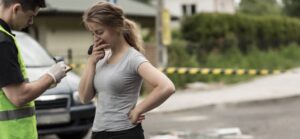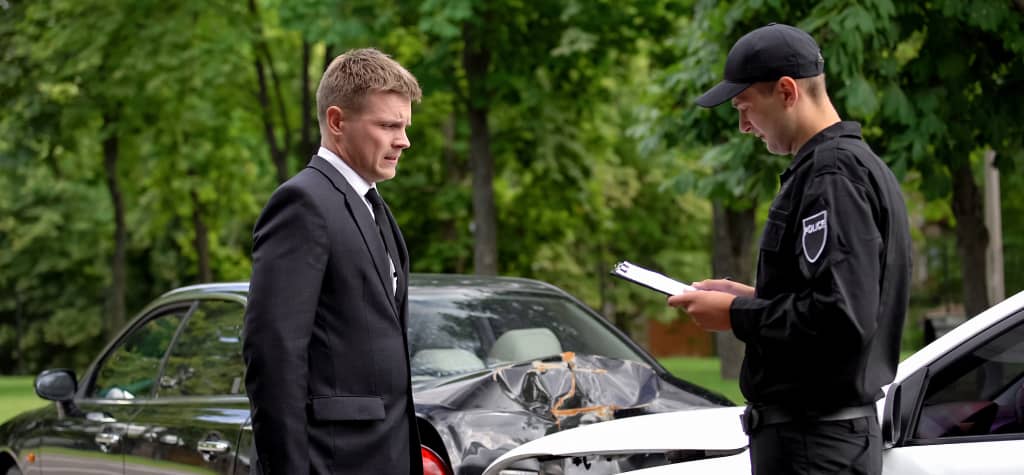Minor accidents, like a fender bender or a slow-speed collision, can seem too small to warrant official documentation. But even if the damage appears insignificant at first glance, the question remains: Do you need a police report for a minor accident? In many cases, the answer is yes.
Understanding when to get a police report and why to file one can help protect your rights and simplify the claims process. From covering misunderstandings about fault to protecting yourself from unexpected legal action or dealing with injuries that appear days later, a formal report may be more important than you think. Here’s what you need to know:
When to Get a Police Report
In Colorado, you’re generally required to file a police report if an accident results in injury, death, or property damage exceeding $1,000. However, it can be hard to determine the full extent of damage or injury at the scene, especially in a stressful moment. This is one reason why, even in minor accidents, it’s often wise to call the police and have an officer officially document the event.
If law enforcement doesn’t come to the scene, you can still submit an accident report yourself. Colorado allows drivers to file online or through the local police department, providing a way to create a legal record even when officers aren’t involved. Filing a report also helps establish a timeline and preserve details while the incident is still fresh in your memory.
Why Reporting a Minor Accident Matters
You may assume a verbal agreement or a quick insurance exchange is enough after a fender bender, but without a police report, you lack a formal account of what happened. This can be a problem if:
- Injuries develop later (such as whiplash or soft tissue damage)
- The other driver denies fault
- Vehicle damage is more extensive than it appeared
- Insurance coverage disputes arise
Having a police report gives you a neutral, third-party, and officially-recognized account that can support your version of events. It can also deter the other involved party from changing their story later on. Insurance companies often rely on these reports when determining fault, so lacking one may weaken your position in a claim.
Read More: Why Are Police Reports Important After a Car Accident?

Minor Accident Documentation: What’s Included?
A typical police report, even for a minor incident, includes:
- Date, time, and location of the crash
- Statements from drivers, passengers, and witnesses
- A diagram of the accident scene
- Descriptions of visible damage
- Any citations issued or laws potentially violated
This objective documentation can be instrumental if you’re questioned about the event later. It also shows that you took the incident seriously and followed the appropriate steps. In addition to supporting your insurance claim, the report may also prove useful if legal action becomes necessary.
Read More: What Information Is Included in a Police Report?
What to Do After a Minor Car Accident
Knowing what to do after a minor car accident can make a big difference in protecting your rights and insurance claims. Even if the crash seems minor, take the following steps:
- Ensure safety first. Move vehicles out of traffic, if possible, and perform a check for injuries on yourself and other passengers.
- Exchange information with the other driver (license, insurance, registration).
- Take photos of the scene, damage, and any relevant road conditions.
- Contact the police if damages or injuries are unclear.
- File a police report online if law enforcement isn’t dispatched.
Remaining calm and thorough in the aftermath of a crash can help avoid problems later. Gathering as much evidence as possible — including witness contact information — can also strengthen your report and support your claim. Even if the incident feels like a hassle or inconvenience at the moment, proper documentation can prevent much larger issues down the road.

Secure A Police Report After All Accidents
While it’s not always legally required, having a police report is strongly recommended, even after a seemingly insignificant crash. It can provide objective documentation that helps with insurance claims, legal disputes, and financial protection.
Ultimately, a report is your record of what happened, when it happened, and how. It provides peace of mind and a paper trail that can make the difference between a smooth resolution and a frustrating ordeal. When it comes to accident documentation, it’s better to be cautious and well-documented than to find yourself unprotected.
Seeking a free, official Colorado police report for your accident? Get yours today!
